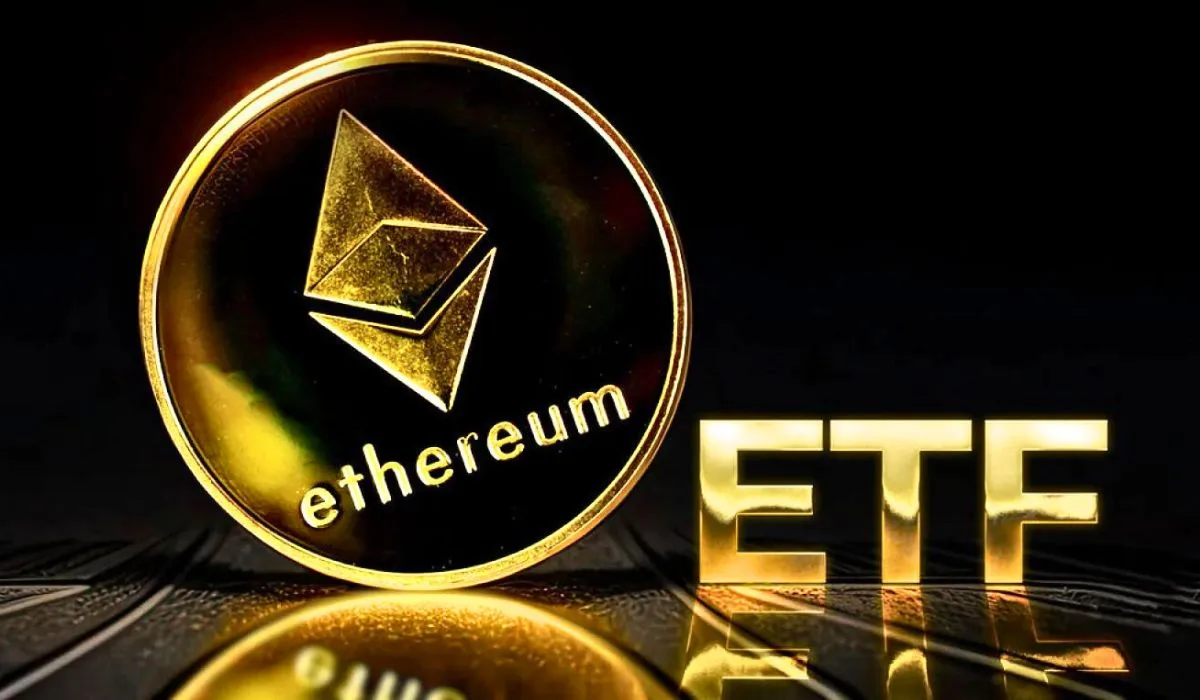The price of Ethereum (ETH), the world’s second-largest cryptocurrency by trading volume, is closing on the $3,000 mark as the ‘Dencun’ upgrade on the blockchain is fast approaching and the market anticipates the listing of spot Ether exchange-traded funds (ETFs) in the US.
According to data from TradingView, ETH price has exceeded $2,980 in the last 24 hours, up over 27% year-to-date. This also marks Ethereum’s highest valuation since May 2022, when it was last trading in the $2,900 range.
The surge in Ethereum’s price is largely attributed to the positive market developments that are expected to occur in the coming months, such as the potential approval of an Ethereum ETF by the US Securities and Exchange Commission (SEC) and the highly-anticipated Dencun upgrade on its main net.
Ethereum Spot ETFs Could Be Approved And Listed Within One Year

Although no significant regulatory developments surrounding the spot Ethereum ETFs have taken place, a certain report has received widespread coverage. Analysts at brokerage firm Bernstein predict that there is a 50% chance that a spot exchange-traded fund tracking the price of ETH will be approved by May and a near-certain chance that such a fund will be listed on stock exchanges within a year.
This report may have affected investor sentiment and market activity, resulting in ETH prices skyrocketing.
However, there has also been backlash surrounding the prospects of an Ethereum ETF.
Thomas Fahrer, a pro-Bitcoin advocate and co-founder of the crypto educational portal Apollo, suggested that Coinbase’s role as the leading Ethereum custodian could compromise the blockchain’s proof-of-stake consensus model by allowing the entity to “control the entire network”.
Data from Dune Analytics suggests that Coinbase is responsible for 15% of all ETH tokens that have been currently staked. Meanwhile, liquid staking protocol Lido Finance is responsible for over 31% of Ethereum staking.
Since there is no information available on just how much ETH will be held in the spot Ethereum ETFs, it is unclear whether Coinbase could dominate the network by holding assets on behalf of those funds.
Furthermore, there is no clarity on whether the SEC will permit the staking of ETH tokens held in spot Ethereum ETFs. However, some applicants are aiming to get the mechanism approved.
To date, asset managers BlackRock, Fidelity, Franklin Templeton, ARK 21Shares, Grayscale, VanEck, Invesco Galaxy, and Hashdex have made filings with the US securities watchdog for a spot Ethereum exchange-traded fund.
May 23 looms as a critical date for a potential ruling on the Ethereum ETF, as that is the date on which the SEC will decide on VanEck’s application.
Dencun Upgrade Expected To Make Ethereum Faster And Much Cheaper To Operate
Apart from the ETF prospects, the market is also looking forward to the Dencun upgrade on the Ethereum main net, which is set to take place on March 13.
The upgrade, which includes the highly-anticipated Ethereum Improvement Proposal (EIP) 4844, or “Proto-Danksharding”, will bring about several improvements to the leading proof-of-stake network, such as significantly reducing transaction fees that will particularly benefit layer 2 rollup chains on the blockchain and also improve its scalability.
In short, EIP-4844 will make Ethereum faster and cheaper to operate.
Ethereum creator Vitalik Buterin is excited about the ‘Ethereum Verkle trees’ that will come about with the Dencun upgrade. Citing a website maintained by Ethereum Foundation developers, Vitalik said Verkle trees will enable stateless validator clients that will allow nodes to run with “near-zero” hard disk space and sync “almost instantly”.
Buterin predicts this will offer a better solo staking experience on the blockchain.
Ethereum Co-Founder Believes AI Can Revolutionalize Bug Remediation
He also expressed his excitement about the application of artificial intelligence (AI) in formal code verification and bug detection. According to Buternin, code problems represent Ethereum’s “biggest technical risk” at the moment and he believes AI can revolutionize bug remediation.
How AI will be able to perform in this regard will need to be seen.
Experts suggest that the design of the Ethereum Virtual Machine (EVM) makes it harder for AI to assist in code verification. They say the EVM’s indirect branching makes it difficult to discover even the simple control flow.
Meanwhile, liquid staking on Ethereum has attracted a huge amount of users. According to a report by DeFiLlama, since January last year, the total value locked in Ethereum-based liquid staking protocol has skyrocketed by almost 600%. With the Dencun upgrade underway, liquid staking on Ethereum might see even more growth in the future.
At the time of writing, ETH is trading at $2,922.
